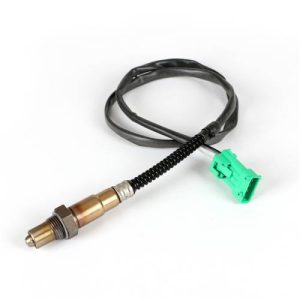Your cart is currently empty!
How can Denso Oxygen Sensor help engine achieve efficient combustion?
The engine is the core component of a car, and its combustion process is crucial to the car's performance and fuel economy. As a key component of the engine control system, the Denso Oxygen Sensor plays an important role in achieving efficient combustion. This article will delve into the working principle, function, and how the Denso Oxygen Sensor can help the engine achieve efficient combustion.
I. Working principle of Denso Oxygen Sensor The Denso Oxygen Sensor is a high-precision sensor that can monitor the oxygen concentration in the engine combustion chamber in real-time. Its working principle is to change the internal resistance value of the sensor according to changes in oxygen concentration. When the oxygen concentration in the engine combustion chamber changes, the Denso Oxygen Sensor will emit different voltage signals, which are transmitted to the engine electronic control unit (ECU), thereby adjusting the fuel supply and ignition timing of the engine to achieve the goal of optimizing the combustion process.
II. The function of Denso Oxygen Sensor Improve engine fuel economy The Denso Oxygen Sensor can accurately detect the oxygen concentration during the engine combustion process, providing important feedback signals to the ECU to help the engine achieve efficient combustion, improve fuel economy, and power performance. When the oxygen concentration in the engine combustion chamber is too high, the Denso Oxygen Sensor will emit a signal, causing the ECU to adjust the fuel supply and ignition timing to make combustion more complete, thereby improving fuel economy.
Reduce engine emissions The Denso Oxygen Sensor plays an important role in engine emission control. When the oxygen concentration in the engine combustion chamber is too low, the Denso Oxygen Sensor will emit a signal, causing the ECU to adjust the fuel supply and ignition timing to increase oxygen concentration, making combustion more complete and reducing engine emissions.
III. How Denso Oxygen Sensor can help engine achieve efficient combustion? Optimize fuel supply The Denso Oxygen Sensor can monitor the oxygen concentration in real-time and provide important feedback signals to the ECU to help the engine achieve efficient combustion. The ECU adjusts the fuel supply and ignition timing based on signals from the Denso Oxygen Sensor to make combustion more complete and improve fuel economy.
Improve combustion process The application of Denso Oxygen Sensor can improve engine combustion process, reduce fuel consumption and emissions. Through real-time monitoring and feedback from Denso Oxygen Sensor, ECU can adjust fuel supply and ignition timing in time to make combustion more complete, improve engine performance and fuel economy.
Reduce engine emissions The Denso Oxygen Sensor plays an important role in engine emission control. When the oxygen concentration in the engine combustion chamber is too low, the Denso Oxygen Sensor will emit a signal, causing the ECU to adjust the fuel supply and ignition timing to increase oxygen concentration, making combustion more complete and reducing engine emissions.
Conclusion: The Denso Oxygen Sensor plays a key role in engine combustion process, helping to improve engine fuel economy and power performance while reducing engine emissions. Through real-time monitoring and feedback from Denso Oxygen Sensor, the engine can achieve efficient combustion, bringing a better driving experience to car owners.






Leave a Reply